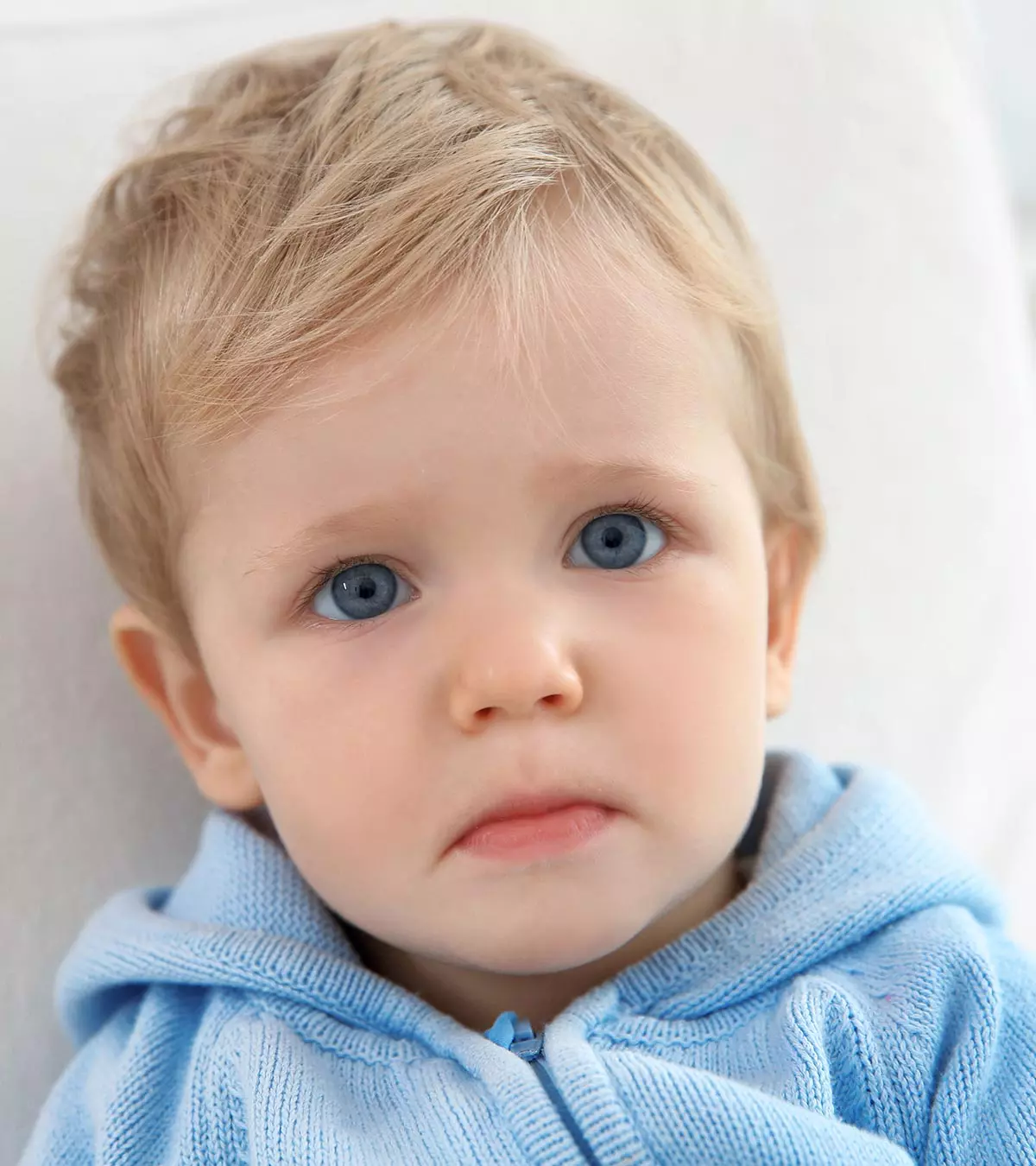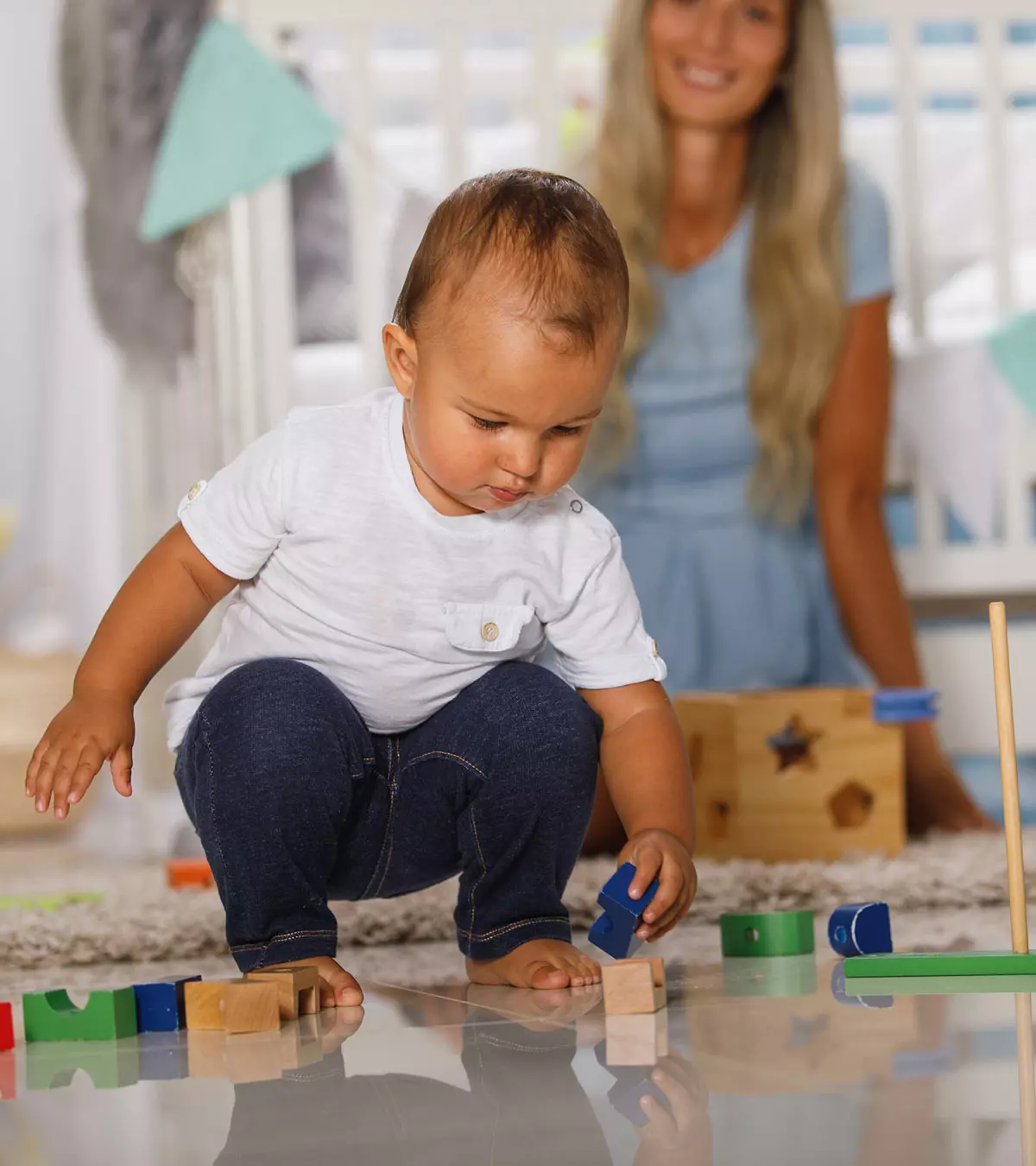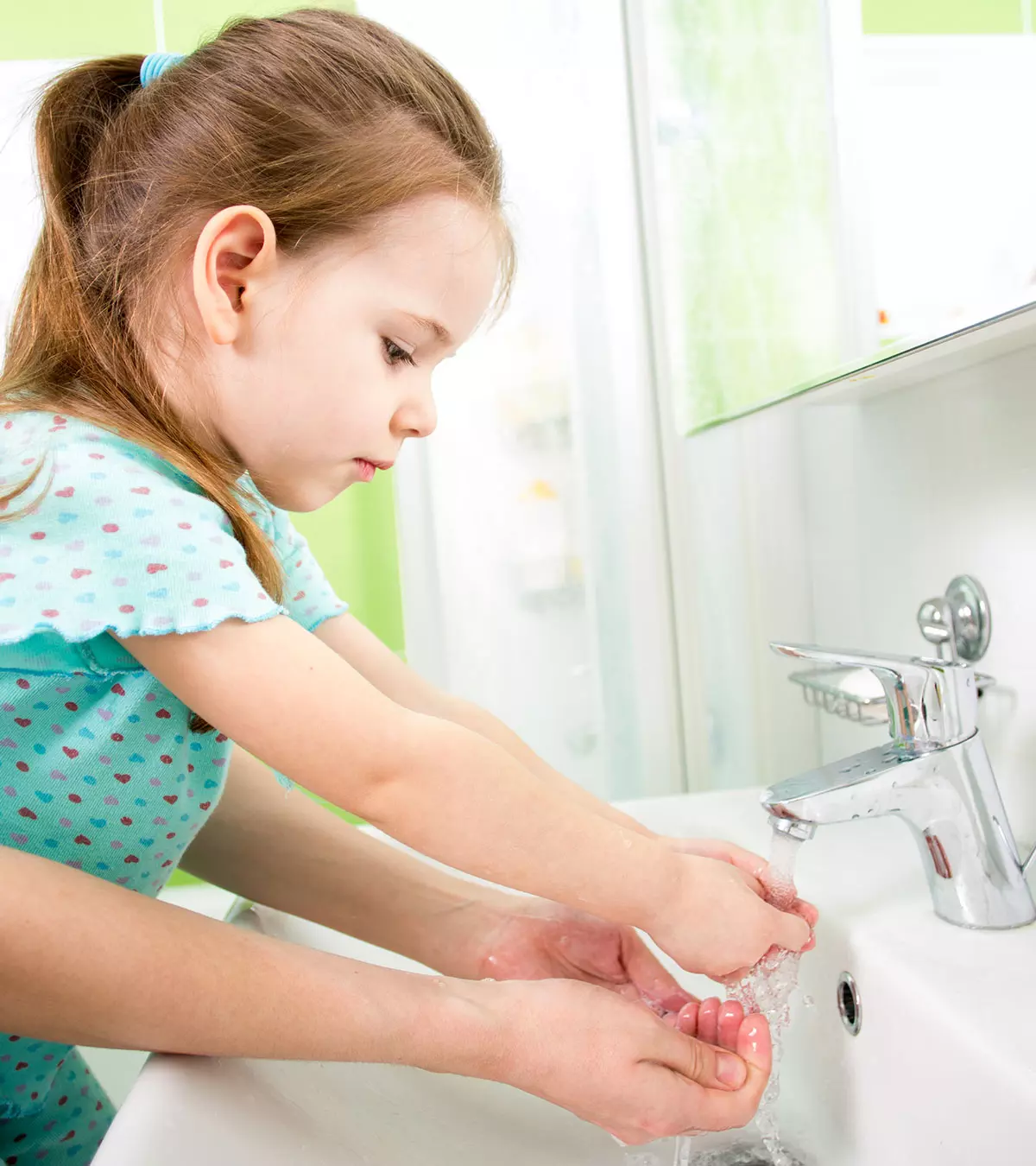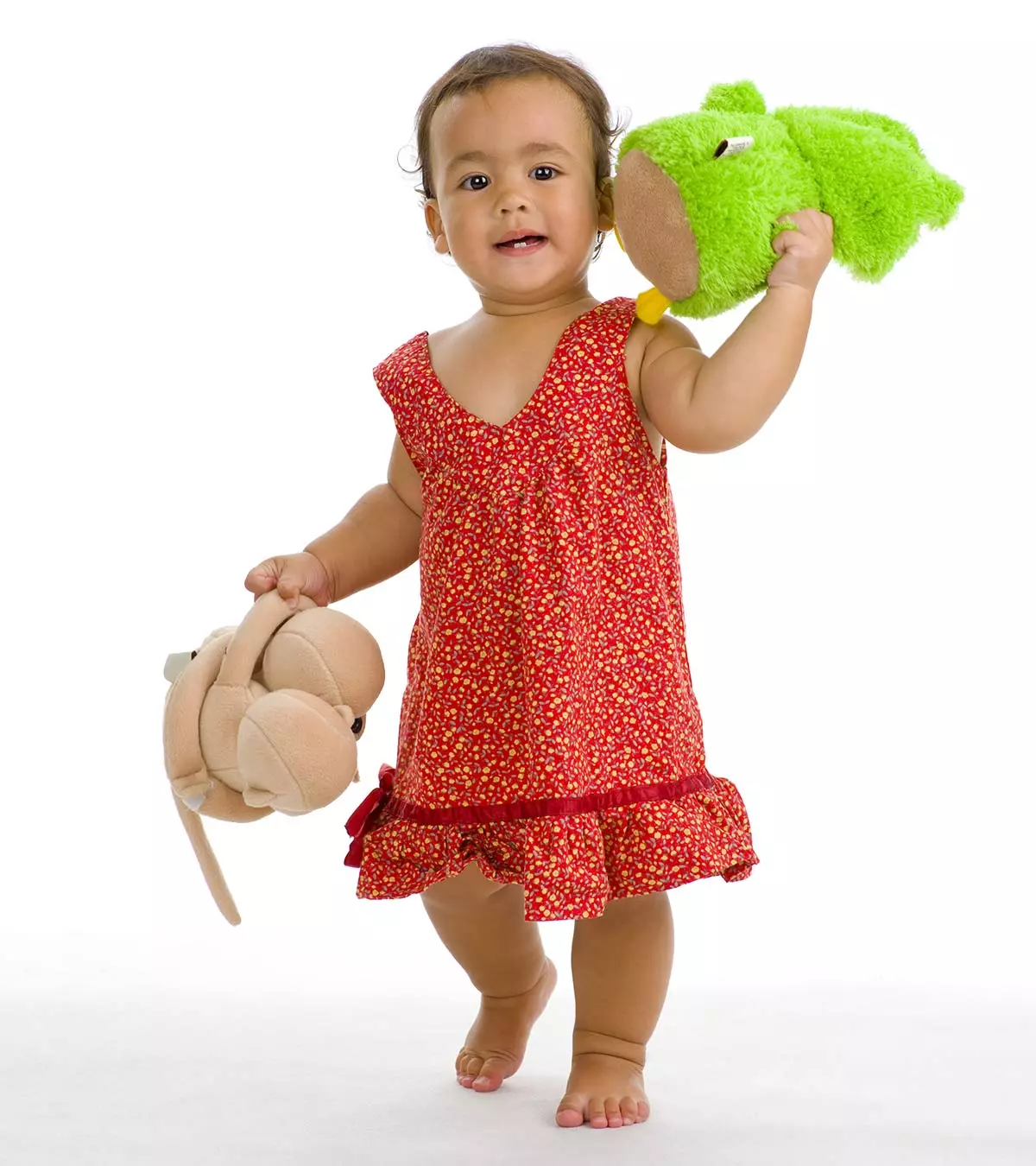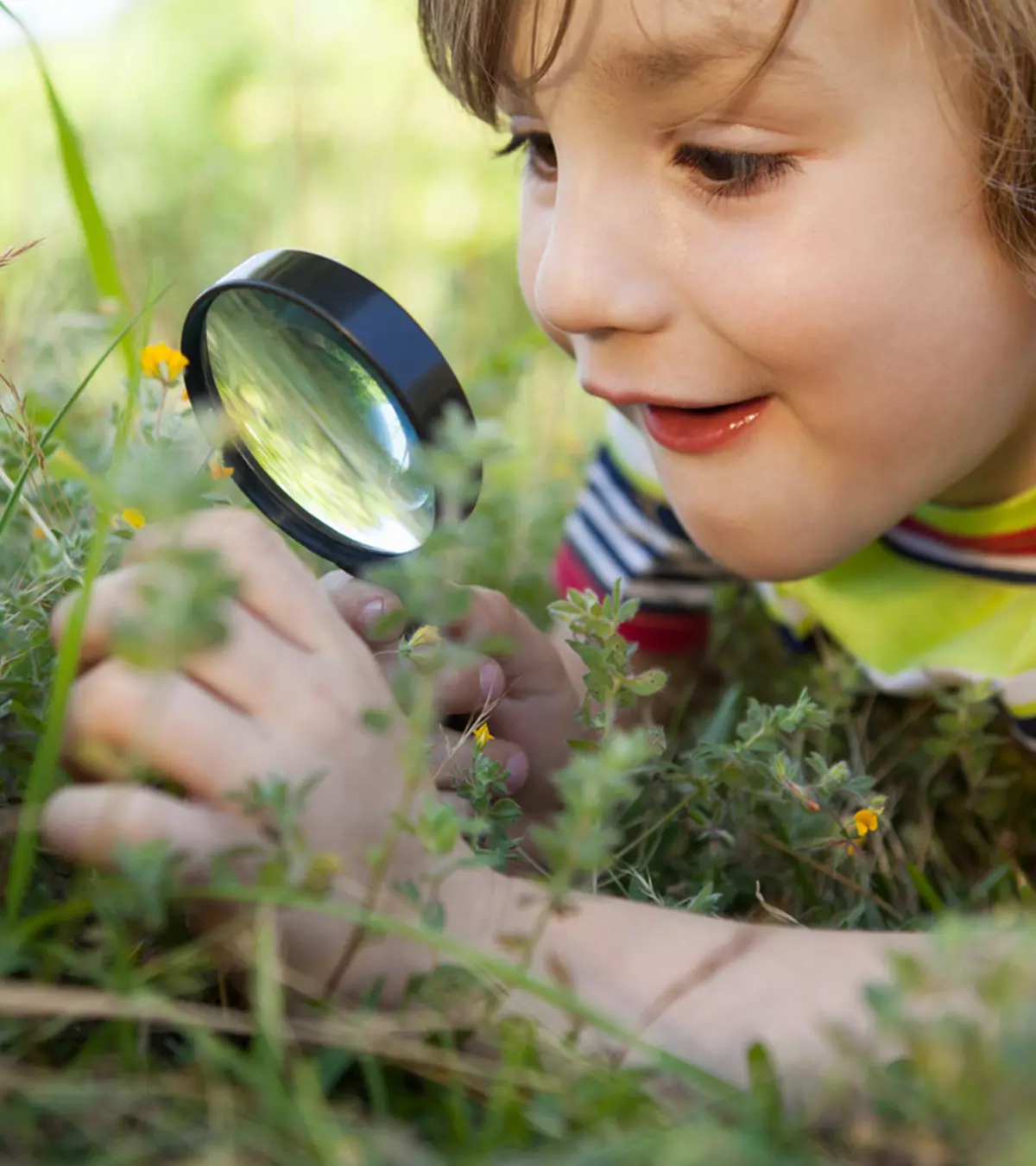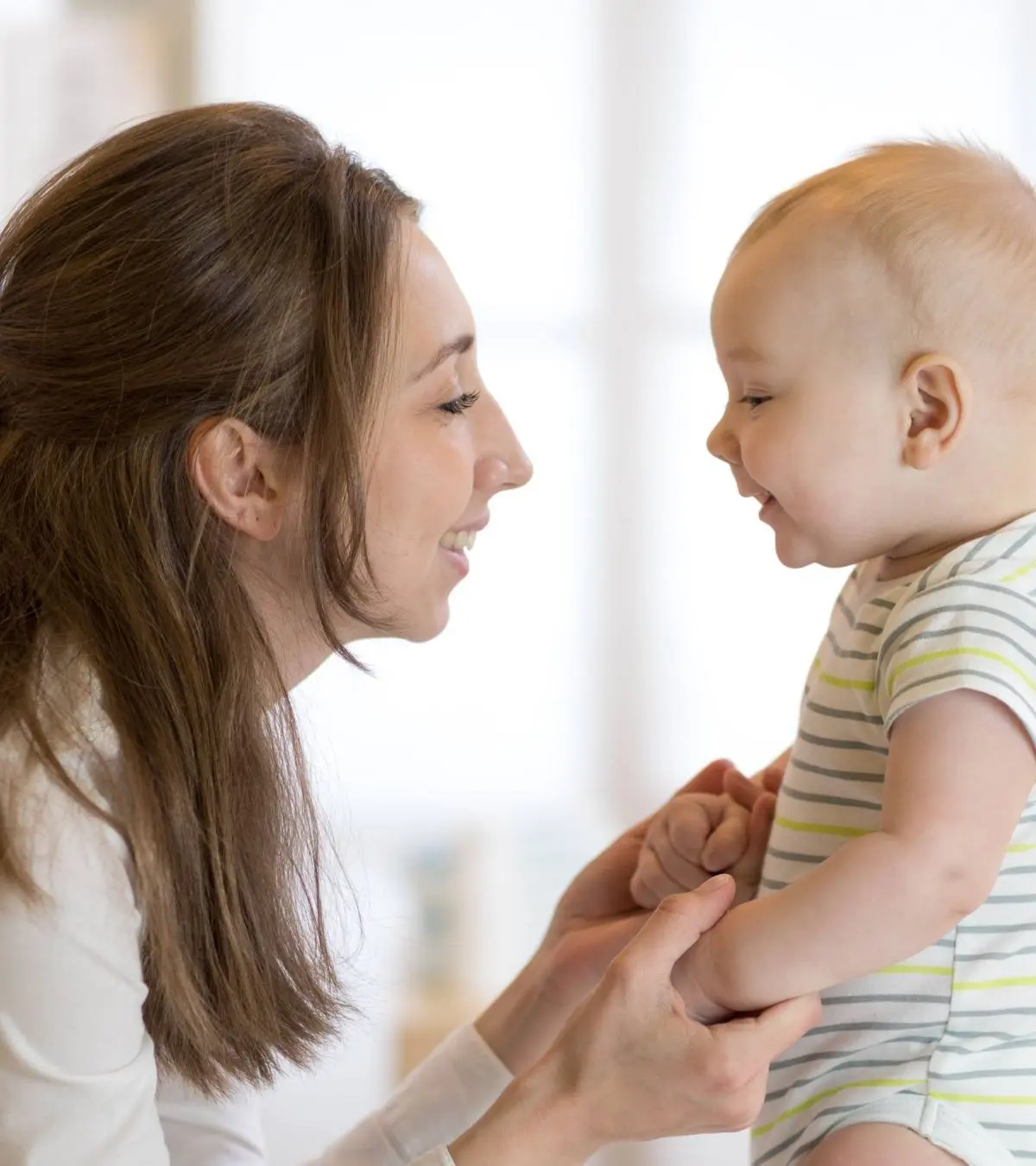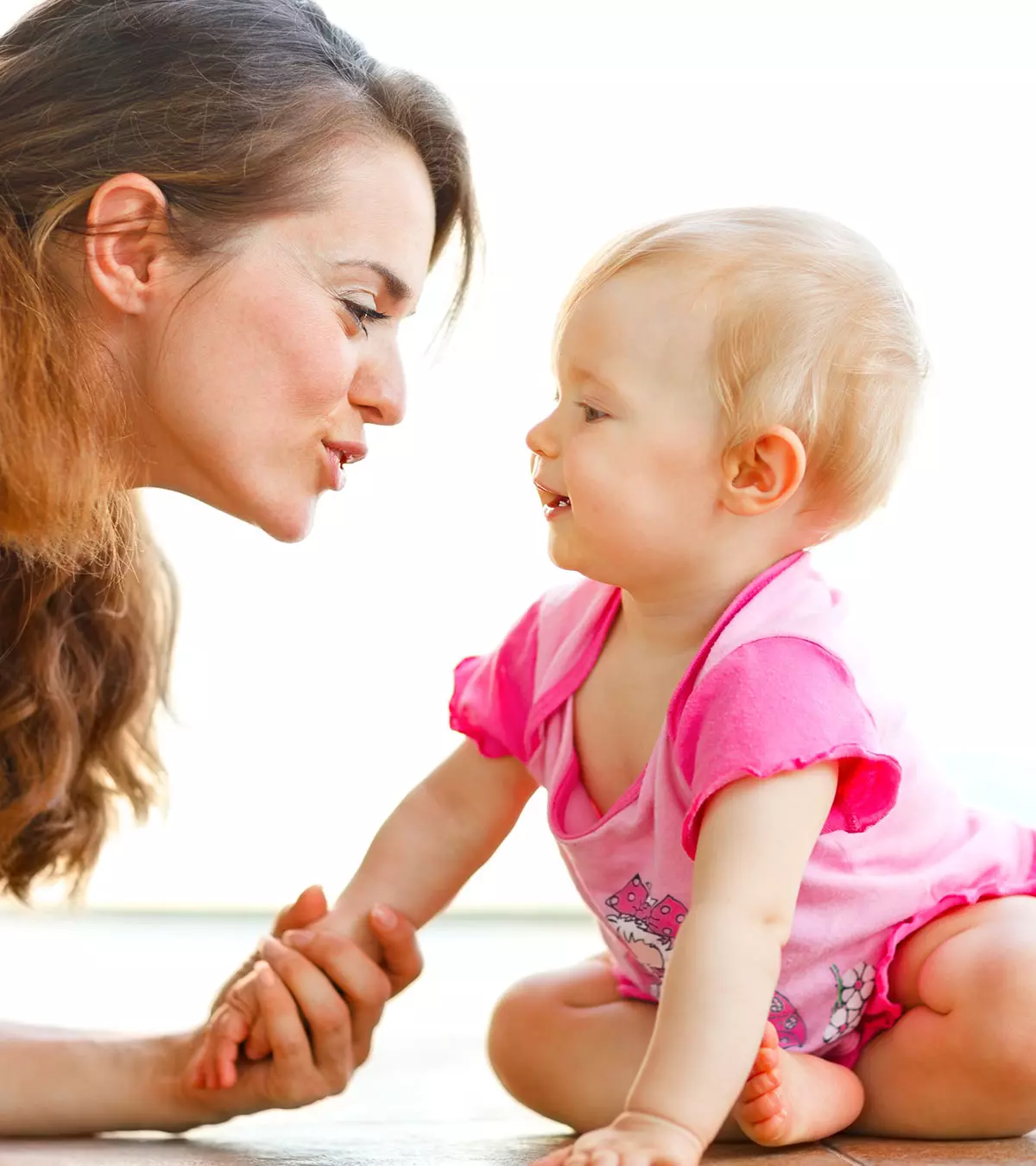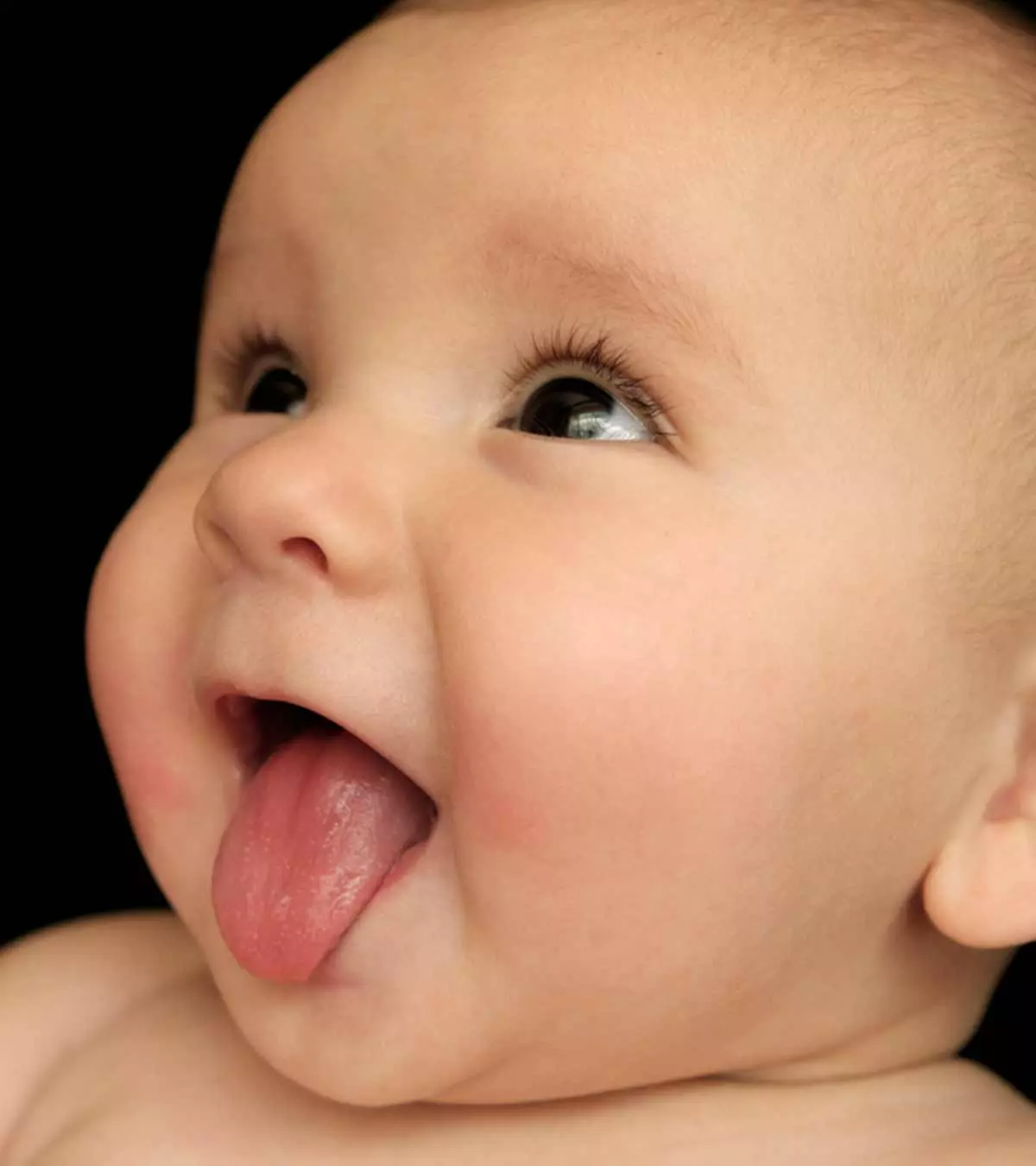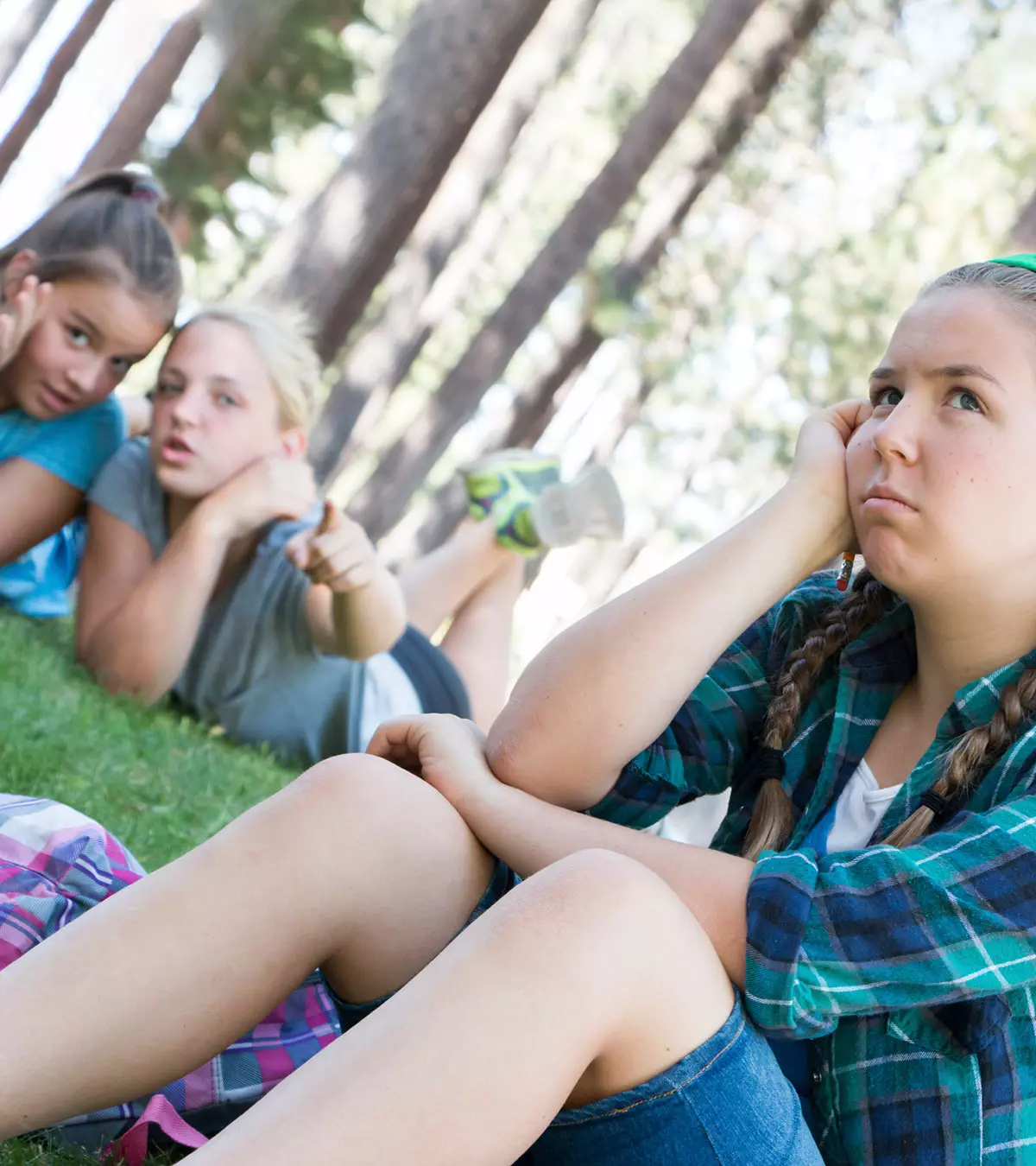
Image: Shutterstock
Social changes during puberty are more evident when the teen becomes more independent and spends more time with their peers. It is also a time when your child goes through emotional and bodily growth and changes. During this transition period from childhood to adulthood, they may not exhibit characteristics of children or adults. So adolescence can be a confusing period, and you may notice their unexpected, irrational behaviors (1).
Most teenagers need constant reassurance and support from their parents while going through puberty. Educating them about good and bad habits can help them avoid getting into trouble groups. You may also understand their transition and set limitations and rules that give them opportunities to explore themselves as an individual. Keep reading as we explain more about the social changes during adolescence and how to help your teen deal with these changes.
Key Pointers
- Adolescence is a time of confusion, with changes to the body and emotions leading to unexpected behaviors.
- Treating teenagers as both children and adults can be beneficial during this period of identity exploration and increased responsibility.
- Parental support and encouragement are essential for teenagers facing self-esteem challenges.
- Puberty may drive some teens to seek out new experiences and break rules, increasing their risk of engaging in dangerous behavior.
- It’s crucial for parents to be aware of potential signs of depression and suicidal thoughts in their teenage children and seek help if needed.
Social Changes During Puberty
Here are some of the most common social changes that boys and girls may go through once they hit puberty:
1. Searching for identity

Image: IStock
- The years of puberty can be extremely confusing for your child as they cannot connect with their earlier feelings of being young children, nor can they understand the adult world completely. As a result, your child will find it very difficult to define whether he is either a child or an adult.
- Your young child will keep trying to understand where they fit in the scheme of things and how they are supposed to behave.
- At this stage, if you treat them as children, they will find it extremely insulting and may show their resentment. Also, if you try to treat them as adults and tell them to behave with maturity, they may find it very restrictive and find it difficult to stick to rules.
- Also, as a constant search to find their identity, your child will try to take on more and more responsibility, which they may or may not be able to fulfill. This is one of the common social changes in the puberty stage.
Lucinda, a mother of two daughters and author of a blog on WordPress talks about how she dealt with her daughters during puberty. She says, “My daughter of 13 is going through puberty and believe it or not this is the first time I am really motivated to know more about puberty. Especially knowing what is going on and what you should or shouldn’t do as a parent. Every child goes through puberty in his or her unique way. I went through puberty being bad tempered ,obstinate and misunderstood.
“My first two daughters seemed to have each other and as a parent only once in a while they seem to require my assistance. Our church with the young peoples activities also contributed to a smooth puberty of my 2 oldest daughters. So puberty issues were being dealt with without my involvement. But now I see my daughter of 13 having mood swings and I want to know more of that. I want to be there for her notwithstanding my limitations and own life challenges. We talk more about her life and day to day experiences. Thank God she likes the attention. So my asking her a lot of questions is not “awkward”. She also shares her experiences with her older sisters, sometime they appear to be a better counselors just because they are more aware of the “signs of the time”. One thing I know for sure is that my daughter of 13 can count on 3 people being actively involved with her puberty (i)!”
Parental Tip:
Treat your growing child with a mix of both the phases, that of being a child and that of developing into an adult. Make sure you give them the love and attention you gave them when they were just young children but also start giving them a little more independence and trust them with responsibilities (2).
2. Issues with self-esteem

Image: Shutterstock
- During the years of puberty, your child will come in contact with a lot of new friends and people. As a result, they will get the chance to see a lot of different personalities and may often compare them with their personality and nature (2). Social media may also increase self-esteem issues, as teens often compare themselves to influencers and get drawn to their perfect body representations and often exaggerated lifestyles.
- With so many new responsibilities coming up and so many new changes happening all around them, your child may go through a lot of confusion. It can make children wonder whether they are capable of making rational decisions and whether there is something lacking in their personalities. They might even think that they lack social skills.
- The years during puberty are also very crucial for your child regarding keeping up a positive and strong personality in front of friends and peers. As a result, trying to understand their bodily changes and the conflicts that are going through their minds may often make them doubt themselves and create a negative image of their personality.
- Puberty and teenage growth spurt go hand in hand. Your child will experience not only major physical changes but will also encounter emotional changes during puberty. They may also develop body image issues.
Parental Tip:
Make sure that you always offer a lot of support and encouragement to your child in whatever he or she is doing. Do not just limit your support to words, instead, also show them through your actions that you do believe in them and that you will be there to help them out if they need it (3). Encourage activities that boost self-esteem—sports, arts, or volunteer work. These may help them build confidence and feel a sense of belonging. Let your child know that for all the changes that they are going through, you only love them more and do trust them.
 Do remember
Do remember3. The risk of getting involved in dangerous behavior

Image: IStock
- Because your child is going through many changes, there is always a conflict going on. Your child will constantly try to break away from the previously set rules and regulations to assert his independence.
- The constant need to break free and to prove to the world that they have grown up can have an extremely negative impact on most young children at this age.
- During these years, your young child will be in a constant need to seek new thrills and experiences. As a result, it can also mean that your child will come into contact with the wrong set of youngsters who may not always be the best choice as friends or role models. Your child’s decision-making skills are not honed yet and they have little maturity, which makes it difficult for them to make the correct decisions.
- Your child at this age may gather new experiences related to drinking, smoking, tobacco use, substance, and drug abuse, as well as risky experiences and adventures regarding physical or sexual intimacy (3). Even though you may have spoken to your child about all of this before and are sure that they know what is right and what is wrong, there are still chances that your child will get influenced by what their other friends are doing. You need to be extra careful and ensure that this does not happen. This is a major social change that occurs during puberty.
Parental Tip:
Do not show your child down in front of their friends, as it will only increase resentment and make them want to break away from rules even more. If you are not happy with the kind of friends they are in touch with or if you are not happy with their behavior, talk to them in a calm manner, without being preachy. If you suspect that your child may be in danger or seems to get addicted, make sure you speak to a counselor for your child.
4. Depression and suicidal or self-harming thoughts
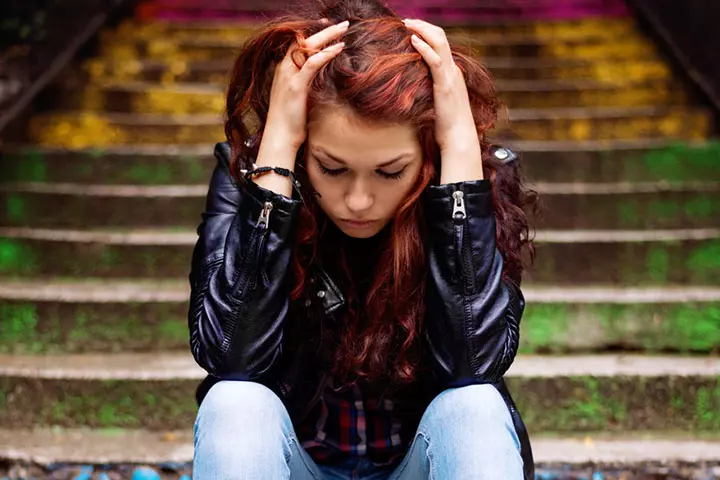
Image: IStock
- The years of puberty are also critical and are times when your child may go through a range of emotions, including depression, ranging from mild to severe. While many children can often bounce back from depression on their own, with the help and love of family and friends, some children may face severe depression and need professional help (4).
- It is a very common thing for your child to feel sad and unhappy at the drop of a hat during this time. Also, your child may not realize why they are feeling unhappy, and make it more difficult for them to understand what they can do to get out of that feeling.
- The years of puberty are not just filled with changes that apply to how your child is growing and developing. During these years, your child will also face some very important times in the academic world, and a lot of stress can further contribute to the feeling of depression. This is one of the causes of the social effects of puberty.
- Your child will feel a constant need to perform well and fare better than others, which can cause severe distress and anxiety. A lot of things will be happening in your child’s world at this age, which your child will be facing for the first time. From meeting new people to interacting more with the opposite sex and exploring romantic relationships to experiencing the first pulls of sexual or physical needs, many factors can contribute to your child’s stress during these years. The pressure to maintain a positive image and adopt an almost adult-like personality can also be stressful for them.
- As a parent, it is important for you to look for signs of depression, anxiety, self-harm as well as any suicidal tendencies that may come up in your child (4). Some of the most common signs and symptoms are being sad all the time without any proper reason or without being able to explain why, feeling worthless or having low self-esteem, no interest in activities that your child had loved earlier. Avoiding meeting friends, speaking to family members or going to social gatherings, preferring to be alone, and not responding to questions. Trying to avoid going to school or not going to school at all, difficulty in completing academic projects. Complaints from teachers about poor performance in class, difficulty concentrating and paying attention are some of the changes that occur during puberty.
Parental Tip:
If you notice any of the above symptoms in your children, make sure you speak to them and try to ask them what they are feeling. Show that you give importance to their feelings and assure them that no matter what is disturbing them, you will not judge them for it. If appropriate, you can also tell them about similar experiences you had when you were growing up and how you dealt with them. If you feel that despite all your efforts you are not able to help your child, make sure you speak to a doctor or counselor about it. Feelings of depression, self-harm and suicide are extremely dangerous and should be treated with immediate concern.

Image: IStock
Frequently Asked Questions
1. How do social media and technology shape social changes during puberty?
Social media platforms have become a primary source of information, socialization, and identity formation. Social media and advertisements can influence health, lifestyle, body image, and self-esteem during puberty, leading to changes in behavior and attitudes. Good quality material can positively impact and help form an identity (5).
2. How do gender and culture influence social changes during puberty?
Cultural norms and preconceived notions about sexuality, gender roles, and stereotypes may influence social changes during puberty in girls and boys. They affect the way adolescents perceive and express themselves.
3. How does early or delayed puberty impact social development?
Pubertal timing has been shown to impact the mental well-being of adolescent boys and girls. Adolescents with delayed or early puberty may experience changes in their psychological health, with some experiencing mental health issues such as depression and anxiety (6).
4. How do hormonal changes during puberty affect social behavior?
Hormonal changes during puberty may cause mood swings, increased aggression, and heightened emotional sensitivity. These changes in hormones may lead to social conflict and affect adolescents’ interactions with their families and peers (7).
5. What are some common changes in peer relationships during puberty?
Some changes in peer relationships during puberty include an increased focus on peer groups, forming more intimate friendships, changes in social hierarchies, spending more time with friends than family, preferring independence, and spending time with peers who validate their worth (8).
Social changes during puberty are common because children undergo several bodily and emotional transformations. They dwell between a confusing stage of childhood and adulthood and often seek to find their identity. They may often get overwhelmed with new responsibilities and experience problems of adolescence, such as self-esteem issues. Peer pressure is at its peak in this stage of life. Societal expectations also dictate certain rules. This is the time when they need endless parental support and guidance. Parents need to be patient and understand the changes they are going through. In the lack of proper direction, children may get involved in dangerous activities or experience depression. Therefore, support your child and let them know you are in it together. With proper communication, you can guide them through this difficult time.
Infographic: How Parents Can Support Children In Handling Social Changes In Puberty
Puberty is a time of significant social changes. They may experience social pressure, changes in their relationships with peers and adults, and the development of new interests and values. As a parent, it can be challenging to navigate these changes and support your child. Use this infographic to help your child through the social changes in a practical way. Illustration: Momjunction Design Team
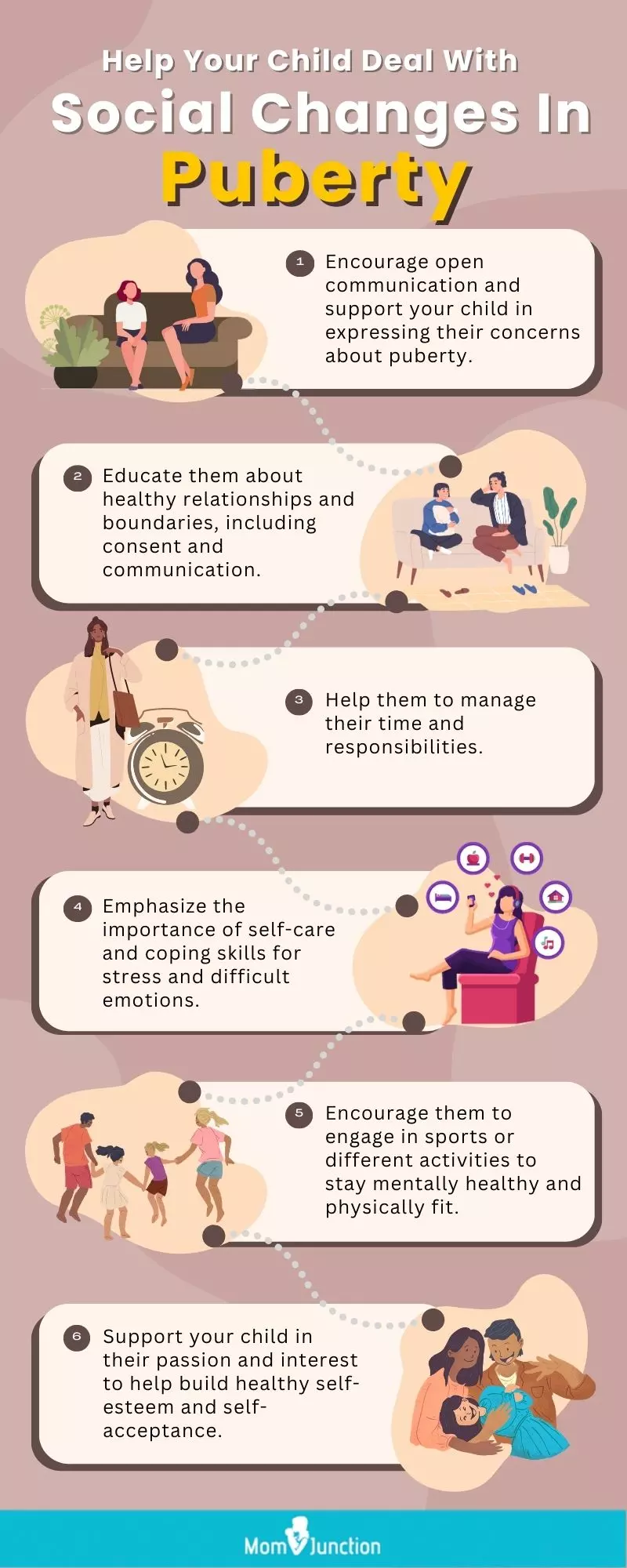
Illustration: Social Changes During Puberty In Boys And Girls
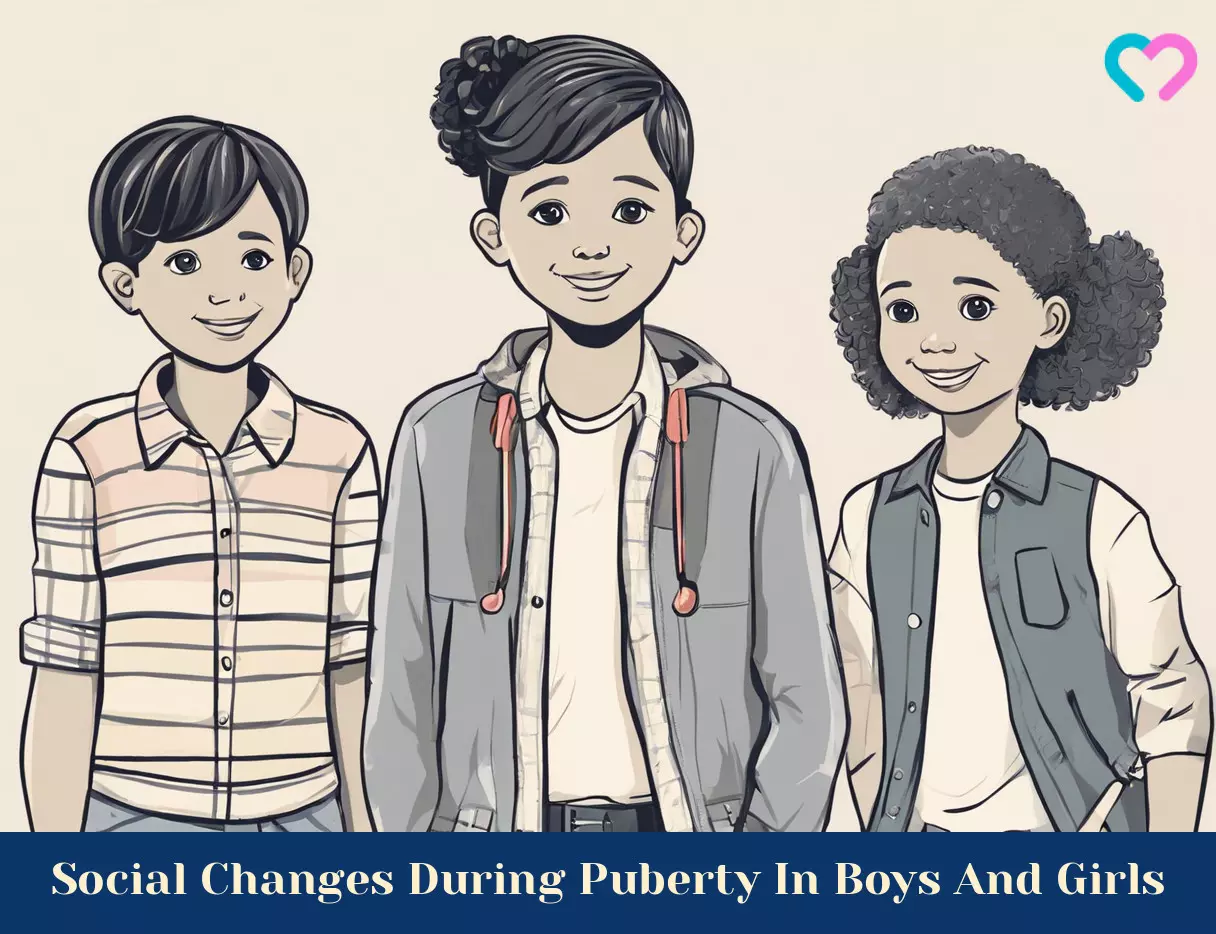
Image: Stable Diffusion/MomJunction Design Team
This video offers advice on managing the puzzling stage of puberty when rapid emotional transformations occur. Discover helpful techniques for dealing with these changes.
Personal Experience: Source
MomJunction articles include first-hand experiences to provide you with better insights through real-life narratives. Here are the sources of personal accounts referenced in this article.
i. Puberty, life, and other challenges;https://lucinda408.wordpress.com/2014/09/30/puberty-life-and-other-challenges/
References
- The Promise of Adolescence: Realizing Opportunity for All Youth.
https://www.ncbi.nlm.nih.gov/books/NBK545476/ - Social and emotional changes: pre-teens and teenagers share.
https://raisingchildren.net.au/pre-teens/development/social-emotional-development/social-emotional-changes-9-15-years - Positive Parenting Tips: Young Teens (12–14 years old).
https://www.cdc.gov/child-development/positive-parenting-tips/young-teens-12-14-years.html?CDC_AAref_Val=https://www.cdc.gov/ncbddd/childdevelopment/positiveparenting/adolescence.html - Treatment of Childhood and Adolescent Depression.
https://www.aafp.org/pubs/afp/issues/2012/0901/p442.html - Media influence on pre-teens and teenagers: social media movies YouTube and apps.
https://raisingchildren.net.au/pre-teens/entertainment-technology/media/media-influence-on-teens - Depression Anxiety and Pubertal Timing: Current Research and Future Directions.
https://journals.publishing.umich.edu/umurj/article/id/1383/ - Emotional changes in puberty.
https://www.healthdirect.gov.au/emotional-changes-puberty - Teens: Relationship Development.
https://www.urmc.rochester.edu/encyclopedia/content.aspx?contenttypeid=90&contentid=P01642
Community Experiences
Join the conversation and become a part of our nurturing community! Share your stories, experiences, and insights to connect with fellow parents.
Read full bio of Dr. Neha Mehta
Read full bio of Debolina Raja
Read full bio of Harshita Makvana
Read full bio of Apoorva K







